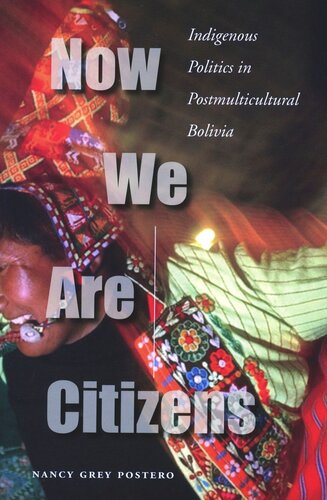

Most ebook files are in PDF format, so you can easily read them using various software such as Foxit Reader or directly on the Google Chrome browser.
Some ebook files are released by publishers in other formats such as .awz, .mobi, .epub, .fb2, etc. You may need to install specific software to read these formats on mobile/PC, such as Calibre.
Please read the tutorial at this link: https://ebookbell.com/faq
We offer FREE conversion to the popular formats you request; however, this may take some time. Therefore, right after payment, please email us, and we will try to provide the service as quickly as possible.
For some exceptional file formats or broken links (if any), please refrain from opening any disputes. Instead, email us first, and we will try to assist within a maximum of 6 hours.
EbookBell Team

4.1
70 reviewsUpon winning the 2005 presidential election, Evo Morales became the first indigenous person to lead Bolivia since the arrival of the Spanish more than five hundred years before. Morales’s election is the culmination of a striking new kind of activism in Bolivia. Born out of a history of resistance to colonial racism and developed in collective struggles against the post-revolutionary state, this movement crystallized over the last decade as poor and Indian Bolivian citizens engaged with the democratic promises and exclusions of neoliberal multiculturalism. This ethnography of the Guaraní Indians of Santa Cruz traces how recent political reforms, most notably the Law of Popular Participation, recast the racist exclusions of the past, and offers a fresh look at neoliberalism. Armed with the language of citizenship and an expectation of the rights citizenship implies, this group is demanding radical changes to the structured inequalities that mark Bolivian society. As the 2005 election proved, even Bolivia’s most marginalized people can reform fundamental ideas about the nation, multiculturalism, neoliberalism, and democracy.